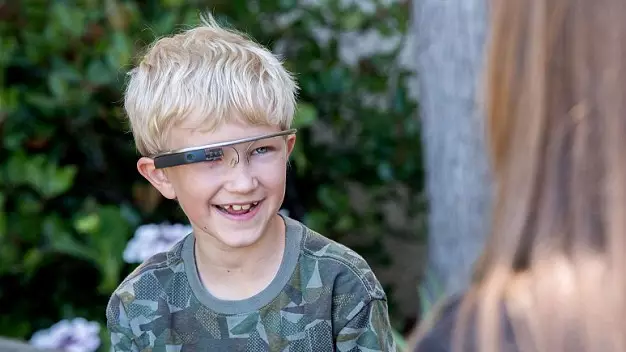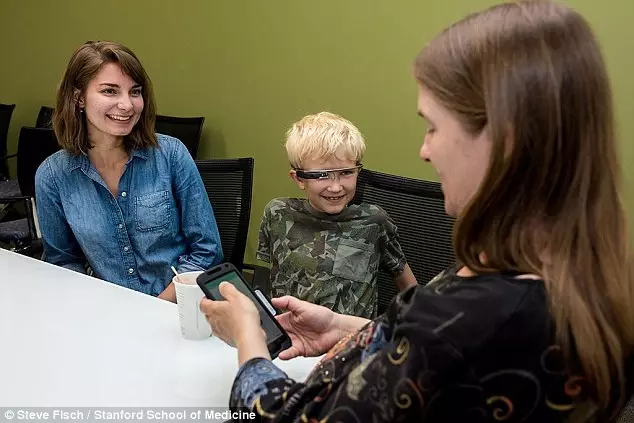
Now this is all kinds of awesome. Researchers have paired Google Glass eyewear with smartphone software designed to read facial expressions to help children with autism read facial expressions in order to assess other people's emotions.
Google discontinued its Glass eyewear for consumers worldwide in 2015, but the company has been working on a new version of the hardware for enterprise customers, and collaborated with Stanford University School Of Medicine.
The project was dubbed Superpower Glass and helped teach the children in the study to recognise the emotions conveyed by people's facial expressions - something sufferers of autism can have a very difficult time doing.
The expressions were captured by the camera on the eyeglasses and researchers programmed the companion smartphone app for Google Glass to use games to provide real-time cues about the facial expressions captured.
As the child interacts with other people, the app identifies and names the emotions of whoever the child is speaking to through the Google Glass speaker or screen.

What's even more remarkable about this futuristic, Star Trek-esque technology is thatafter just one to three months of regular use, parents reported children with autism made eye contact more regularly and related better to others. Which is incredible.
Nine-year-old Alex was one of 14 children aged between three and 17 with a clinically confirmed autism diagnosis who tried out the pilot project for an average period of 10 weeks.
Before the study, he was unable to look people in the eye, despite his mother, Donji Cullenbine, prompting him to.
Donji said: "I would smile and say things like, 'You looked at me three times today', but it didn't really move the bar."
A few weeks into the trial, however, and that had all changed, as Alex began to realise that people's faces held clues to how they were feeling.
"He told me, 'Mommy, I can read minds'," said Alex's mother. "My heart sang. I'd like other parents to have the same experience."
Associate professor of paediatrics and biomedical data science, Dr Dennis Wall, said the treatment could help fill a major gap in autism care, especially as in the USA there's an 18 month waiting list to see a specialist.
That's a particular problem because early autism therapy can be incredibly effective, but many children don't get treated in time to receive the maximum benefits.
Featured Image Credit: Stanford School of Medicine.